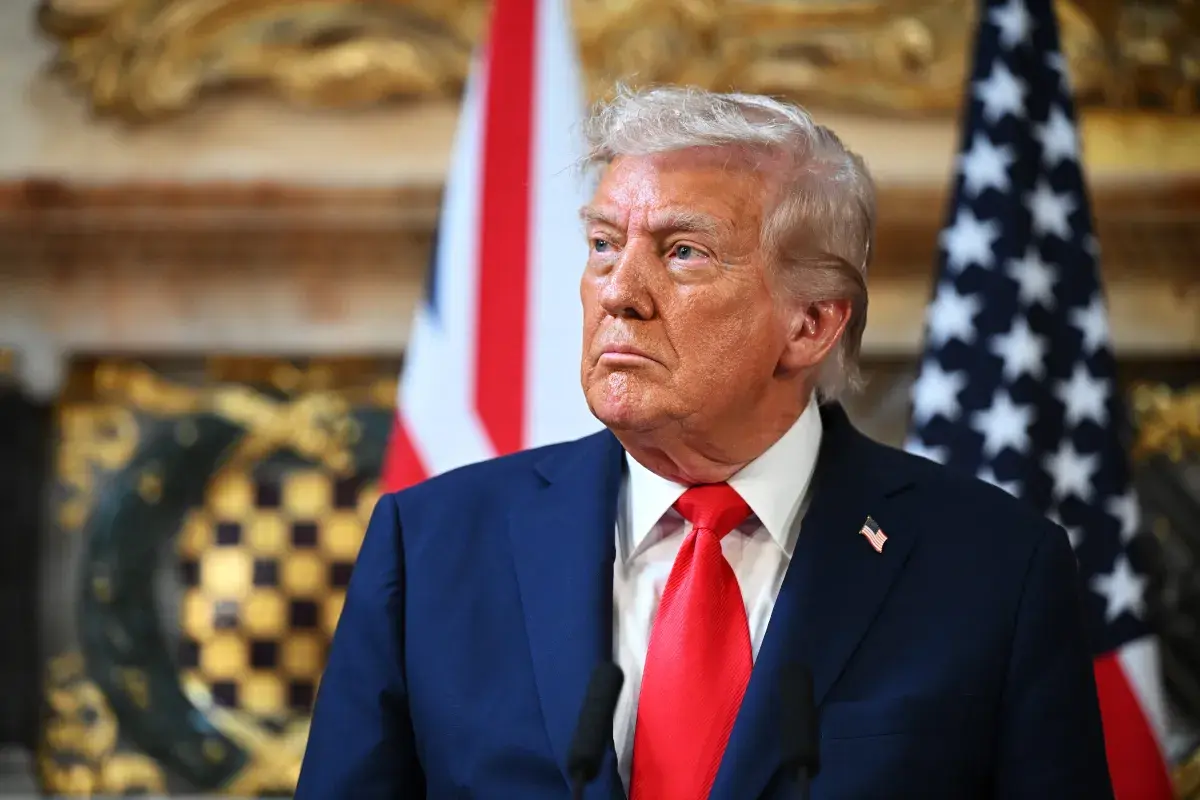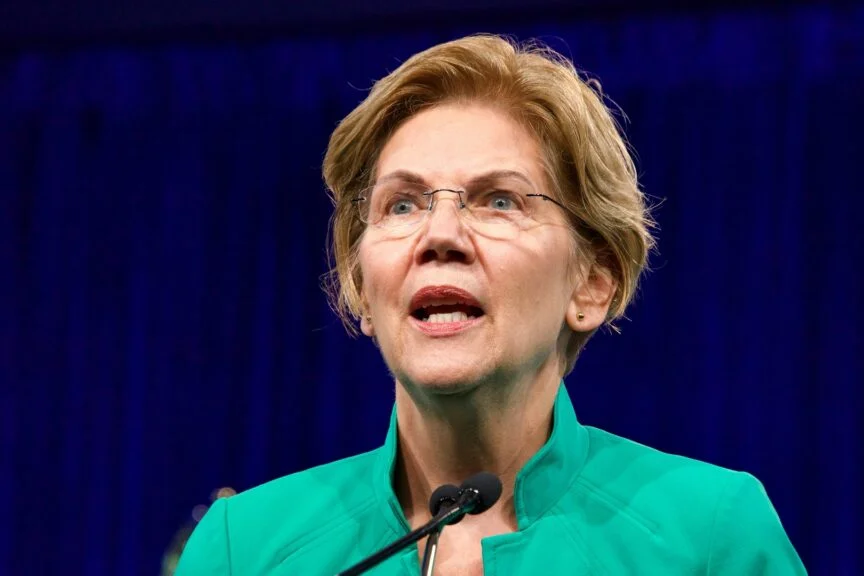
The chances of a government shutdown have risen in the past few days as Democratic and Republican lawmakers struggle to reach a deal to provide more funding for the federal government, according to oddsmakers.
The House of Representatives has passed a temporary funding bill to avoid the shutdown, but it has stalled in the Senate, where it must overcome the 60-vote filibuster to become law. Republicans hold a 53-47 majority, so it needs some bipartisan support, and Senate leaders remain divided about whether Republicans should make concessions with only four days until the shutdown may begin.
Newsweek reached out to Senate Majority Leader John Thune and Senate Minority Leader Chuck Schumer via spokespersons for comment via email.
Why It Matters
Congress has until the end of September to pass legislation to fund the government. It appears unlikely that lawmakers will be able to pass a series of appropriations bills to provide funding for the entire fiscal year, meaning they will have to again rely on a continuing resolution for temporary funding. But Congressional leaders are at odds over what should be included in that bill.
Republicans control both the House of Representatives and the Senate, but the Senate filibuster, which requires 60 votes to advance bills, means the CR has to have some bipartisan support to pass. Democrats are hoping to get some concessions on health care funding, but Republicans have pushed for a vote on a bill already passed by the House that Democrats do not view as adequate.
There are many impacts of government shutdowns—hundreds of thousands of federal workers may be unpaid or furloughed during the shutdown, and there can be disruptions to passport processing applications, national parks and government benefits.
What to Know
Two of the leading betting odds markets predict that a shutdown is likely as Congress has until the end of the day Tuesday to pass funding legislation.
Polymarket placed the chances of a shutdown at 69 percent on Friday—up from about 47 percent one week earlier. Meanwhile, Kalshi’s odds were at a 67 percent chance of a shutdown, a climb from about a 43 percent chance a week prior.
Trump announced this week that he would not meet with Democratic Congressional leaders like Senate Minority Leader Chuck Schumer and House Minority Leader Hakeem Jeffries, both New York Democrats, over what he described as “unserious and ridiculous demands” in a Truth Social post.
“There are consequences to losing Elections but, based on their letter to me, the Democrats haven’t figured that out yet,” Trump wrote.
Meanwhile, Senate Majority Leader John Thune on Friday called on Democrats to “dial back” demands in an interview with The Associated Press.
“I’m a big believer that there’s always a way out,” he told the AP. “And I think there are off-ramps here, but I don’t think that the negotiating position, at least at the moment, that the Democrats are trying to exert here is going to get you there.”
Democrats have not signaled a willingness to back down from these demands, which include insurance subsidies and reversing cuts in the One Big Beautiful Bill. Democrats like Schumer faced backlash from the party’s base earlier this year after voting to advance a CR that many voters felt did not include meaningful concessions.
While Democrats will be working to avoid a shutdown, they’re also aiming to avoid stoking similar backlash from the base, as many Democratic voters have raised concerns about what they view as a feeble opposition to Trump from Congressional Democrats.
Grant Davis Reeher, Professor of Political Science at Syracuse University, told Newsweek that Democratic leadership has been “getting a lot of pressure from younger activists and their base to be more aggressive and combative with the Republicans,” resulting in demands to “relitigate some of the aspects of the One Big Beautiful Bill, in particular regarding health care”
“Republicans, and in particular President Trump, regard this as a non-starter. I don’t see a lot of wiggle room on this, unless there’s a partial restoration, allowing perhaps some funding to continue as before,” he said. “But no one’s really talking about that as a serious option.”
He compared the situation to the Clinton-Gingrich shutdown of the 1990s, when both parties believe the other will be blamed for the shutdown.
“Who is actually to blame for this? There’s no right answer, but logic would suggest that reopening legislation that was just passed, and making that the basis for a government shutdown, would probably lead to the Democrats being held more accountable,” he said.
That may help Schumer avoid a primary challenge but could backfire outside of the base, he said. As for the midterms, however, political memories are short, so it’s unclear whether a shutdown would matter much in Democrats’ efforts to reclaim a majority in Congress.
A new poll from YouGov found that 37 percent of voters would blame either Republicans in Congress or Trump for a shutdown, while 25 percent said they would blame Democrats in Congress. An additional 26 percent said they would blame everyone equally. The poll surveyed 2,368 adults on September 25, 2025.
Potential Mass Firings Loom Over Shutdown Battle
The Office of Management and Budget (OMB) reportedly ordered agencies to prepare Reduction in Force (RIF) notices for certain employees this week if the government shuts down, according to a memo reported first by Politico.
Schumer blasted the memo as an “attempt at intimidation.”
“Donald Trump has been firing federal workers since Day One—not to govern, but to scare. This is nothing new and has nothing to do with funding the government,” he wrote in a statement on Thursday.
Senator Susan Collins, a Maine Republican, also criticized the memo, according to Portland-based radio station WGAN.
“We must pass a clean, short-term continuing resolution to prevent a harmful government shutdown and allow Congress time to complete the annual funding bills. Federal employees dedicate themselves to serving the public, and they should not be treated as pawns amid a needless partisan impasse,” she said.
What People Are Saying
House Speaker Mike Johnson, a Louisiana Republican, on X: “House Republicans have already done the job of passing a clean, bipartisan bill to keep the government open. Now it’s up to Senate Democrats, who have long said shutdowns are bad and hurt people, to vote to fund the American government, or shut it down because they want to restore taxpayer-funded benefits to illegal aliens.”
House Minority Leader Hakeem Jeffries wrote on X: “Donald Trump and Republicans are continuing to gut health care. That’s why they have no interest in funding the government. Shameful.”
Senator Ruben Gallego, an Arizona Democrat wrote on X on Friday: “The government shuts down in 5 days. Trump refuses to negotiate and canceled his meeting with Democratic leaders. Speaker Johnson sent his members home. If this shutdown happens, it’s on Trump and congressional Republicans. Period.”
What Happens Next
Lawmakers have about four days to pass some sort of funding bill to avoid a shutdown.



